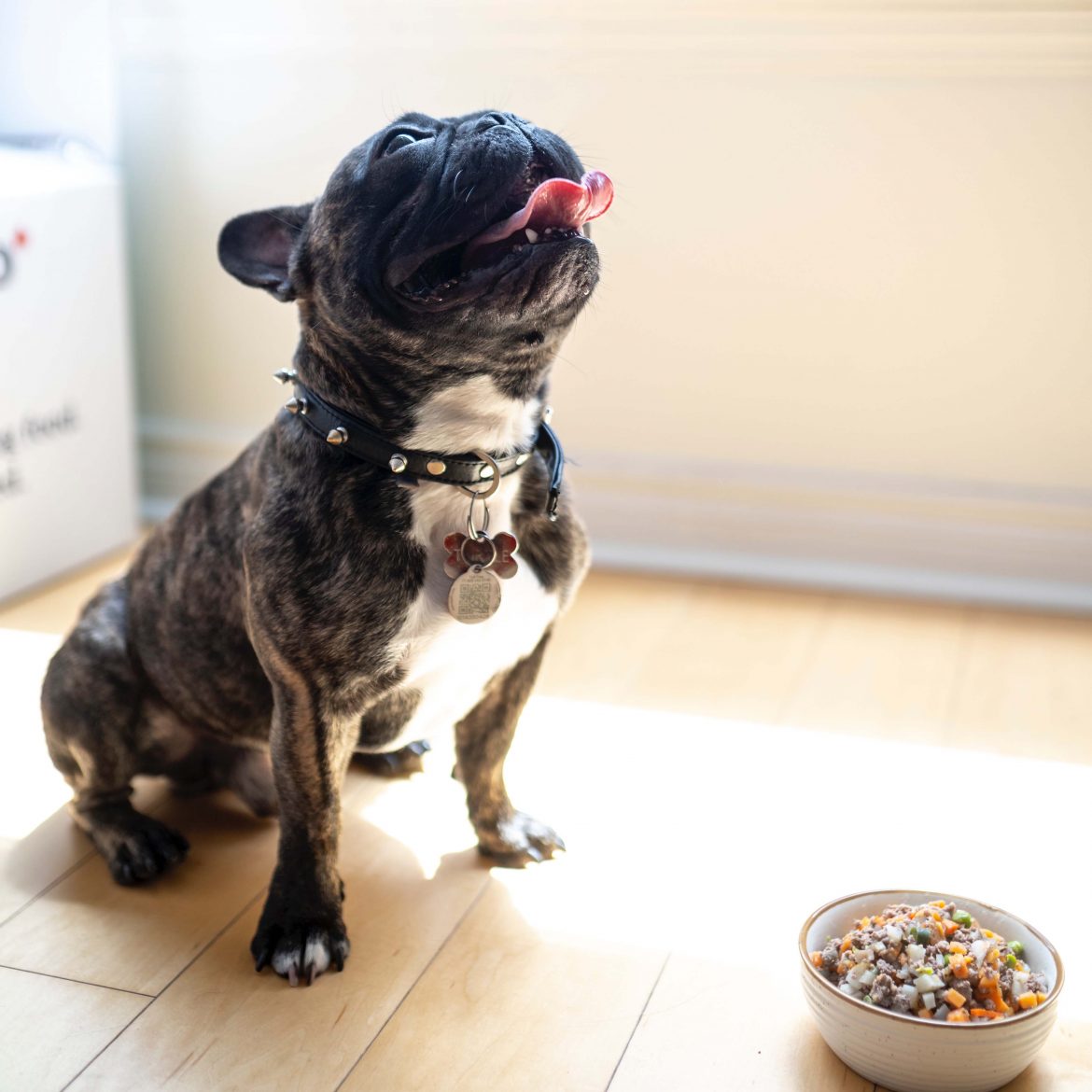The best dog food for puppies should have enough nutrients for the growth and development of your puppy in all its stages of life. Yet, meeting your puppy’s nutritional needs can be daunting and time-consuming, especially if you have a busy schedule. Often, we settle for good old kibble, which, according to experts on canine health, may not have the nutritional balance required to keep your pup healthy.
There is a lot to consider when deciding on the best dog food for your puppy. Fortunately, you do not need a nutrition degree to determine your puppy’s specific nutritional needs. Generally, a balanced diet for a puppy contains;
- Proteins
- Grains
- Fruits and vegetables
- Healthy fats
Proteins
Protein is the primary source of amino acids in dogs. Puppies require about 22 amino acids to grow healthy muscles, tendons, cartilage, and ligament. Proteins are also necessary for hair and nail growth, maintain skin health and elasticity and maintain optimal hormone production.
Animal vs. Plant Proteins
Should you feed your puppy animal-based or plant-based proteins? Animal-based proteins are the best because they contain all the necessary amino acids required for a puppy’s growth and development. Plant proteins may keep your puppy healthy, but the amino acids are not enough to help with bone and muscle growth. For this reason, it is a great idea to mix animal and plant proteins. But if your dog is on a strict plant-based protein diet, like, say, when recovering from a disease and requires a bland diet, it is necessary to top up the dog’s food with pet supplements.
Pro tip: get your puppy Bullyade pet supplements. It contains all the 22 amino acids required by dogs to maintain a healthy body.
Grains
Grains are healthy fillers in your dog’s food. However, get your puppy evaluated for sensitivity to grains or gluten in grain. While some nutritionists advocate for a grain-free diet, eliminating grain from a puppy’s food can be detrimental.
To be safe, consult your vet on the best grains for your puppy. Also, monitor your dog’s health when you are putting on them a diet with grains. Watch out for grain allergy symptoms like;
- Dry, flaky skin
- Excessive licking and chewing
- Recurring ear infections
- Rash or bumps on the skin
- inflamed/reddened paw pads
- Gastrointestinal irritation
- Rapid hair loss
If your dog has the above symptoms, rush your dog to the vet. A diet elimination test will be necessary to identify the allergy-causing grain. When the allergies are over, your vet can suggest other grain options that your pup may respond to better.
Fruits & Vegetables
Puppies get their vitamins and minerals from fruits and vegetables. Vitamins for dogs are essential because they boost your puppy’s immune system and support several other physiological functions.
Puppies need more vitamins and minerals as they grow up. It helps;
- Fortify the puppy’s immunity
- Increase the puppy’s energy level
- Reduces signs of aging
- Improve puppy eyesight
- Speed up wound healing
- Promotes healthy brain function
Essential vitamins for dogs include vitamins A, C, D, E, and B vitamins. Also, puppies need plenty of vitamin K and Choline. Read the full benefits of vitamins for dogs.
Healthy fats
Puppies can benefit from Omega 3 and Omega 6 fatty acids either orally or topically. Omega 3 oil is essential in the early growth and development of a puppy. They are healthy fats that also assist in brain and central nervous system development. Omega 3 should never miss in homemade puppy food because it also helps puppies develop good vision.
Omega 6 fatty acid helps in puppy growth and development as well. Also, Omega 6 healthy oil is vital for boosting a puppy’s immunity and moisturizing the skin and coat. Puppies also need this beneficial oil for their reproductive health.
Preparing the best dog food for puppies
Remember that puppies need a high caloric diet with more protein, vitamins, minerals, and fats. Ideally, the amount of calories to feed your puppy per day depends on the puppy’s projected weight as an adult dog. For instance, a bluenose pitbull puppy that will weigh 60 pounds as an adult will need about 1800 calories a day. You have to feed your puppy at least three times a day to ensure they meet their daily nutritional needs.
Which human foods are the best for homemade puppy food?
The chart below shows the essential nutrients that should be in the best dog food for puppies.
| Nutrition | Source |
| Protein | Beef, Buffalo, Pork, Chicken, Turkey, Organic Eggs, Lamb, Organ Meat, Cod, Sardines |
| Grains | Sorghum, Millet, Chickpeas, Flax Seed, rye Brown rice, barley, oats, quinoa, corn |
| Fruits and vegetables | Cranberries, Blueberries, watermelon, seedless apple, Carrots, pumpkin, spinach, |
| Healthy fats | Coconut oil, sunflower oil, canola, corn oil, flax-seed oil |
Also, ensure you consult a vet first before starting your puppy off on a new diet. Whether you are choosing dry or wet foods, your vet will help you develop a specific diet for your puppy. If you have more than one puppy and they are all healthy, you can feed them the same diet as you monitor their growth.
Always measure your puppy’s weight every week to record their progress. A puppy that is not gaining weight could be sick or not absorbing nutrients properly. If you are raising a litter, some puppies may bully others out of getting their share. The puppy that is not feeding well should have its feeding bowl.
We put together the best dog food for puppies for you!
Looking or preparing the best dog food for puppies can be tedious and time-consuming. Fortunately, we took the time to develop homemade recipes that ensure your puppy gets all the nutrients they need. You can use our healthy raw diet recipes as the main course or as dietary fillers. It makes sense to supplement your puppy’s diet with homemade food, especially when feeding them dry puppy food.
Download our discounted raw diet for dogs eBook today!
I am a highly skilled content writer and SEO expert with a passion for helping small businesses succeed in the digital world. With my extensive knowledge of the latest SEO techniques and strategies, I have successfully assisted numerous clients in improving their website rankings, generating more leads, and driving a significant increase in website traffic.
As a professional content writer and SEO expert, I am confident in my ability to contribute significantly to the success of small businesses. If you are seeking a results-driven, highly skilled digital marketer who can help you increase your ranking, convert new leads, and see a substantial improvement in website traffic, I would welcome the opportunity to collaborate with you.
Website: https://manmadewebsites.com/
Email: hello@digitalmarketingchap.com

